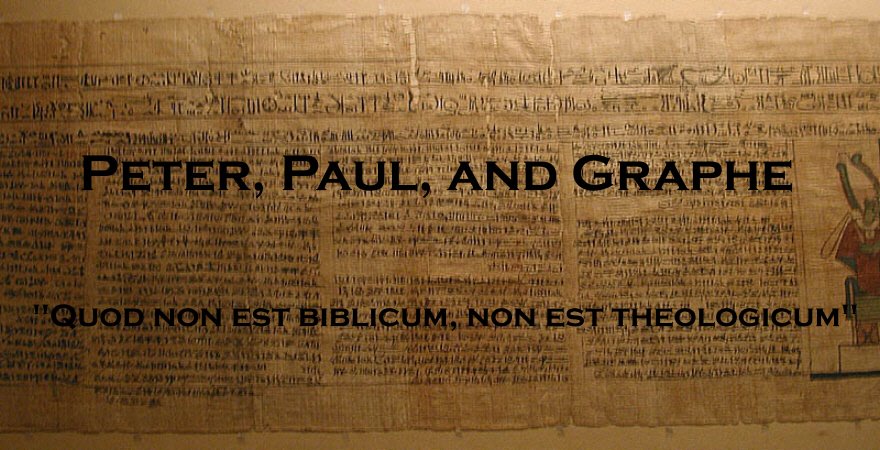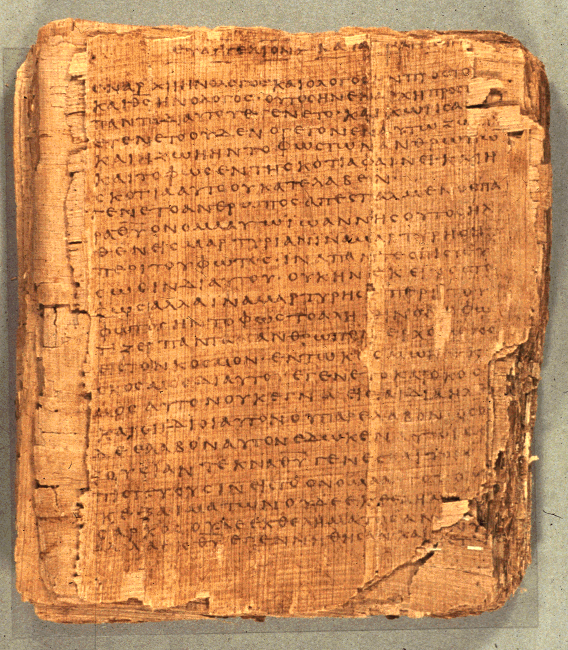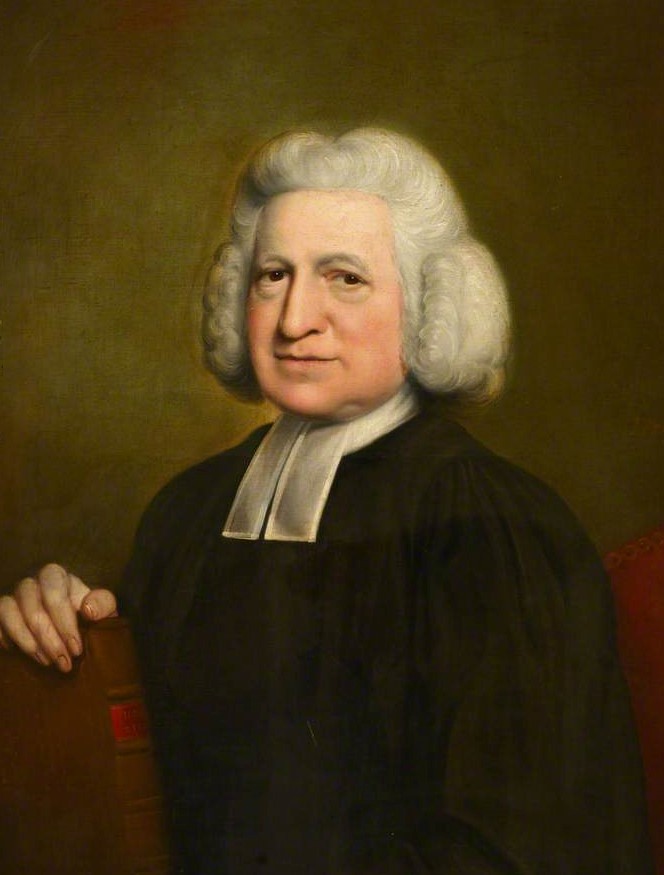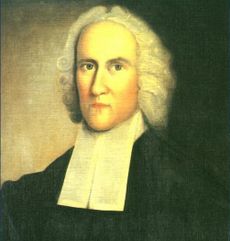About Me

- Name: petros
- Location: Southeastern, Michigan, United States
My wife and I were married in January of 2004. I graduated from Detroit Baptist Theological Seminary in 2010. I am originally from SW Chicagoland and my wife grew up in the suburbs of Kansas City. We met at Northland Baptist Bible College while pursuing Bachelor degrees. We currently reside in Southeastern Michigan.
The Latest of My Thoughts
- Which Goonie are you?
- Global Warming?
- Is Evolution compatible with Creationism?
- Who de think gonna stop dem Bears?
- The Whippoorwill Song
- Interlude: A Little Help Please!
- Rumination's on Hymns: "Praise, My Soul, the King ...
- Switch: Spare yourself the insanity
- Rumination's on Hymns: "I Know Whom I Have Believed"
- Alienation, Reconciliation, and Perseverence in Co...
A Record of Discussions
"The wrath of God is being revealed from heaven against all the godlessness and wickedness of men who suppress the truth by their wickedness, since what may be known about God is plain to them, because God has made it plain to them. For since the creation of the world God's invisible qualities - his eternal power and divine nature - have been clearly seen, being understood from what has been made, so that men are without excuse."
Romans 1:18-20
NIV
Tuesday, August 29, 2006
Wednesday, August 23, 2006
Rumination's on Hymns: "Amazing Grace"
 Amazing Grace, how sweet the sound, That saved a wretch like me - I once was lost but now am found, Was blind, but now, I see. T'was Grace that taught - my heart to fear. And Grace, my fears relieved. How precious did that Grace appear - the hour I first believed. Through many dangers, toils and snares - we have already come. T'was Grace that brought us safe thus far - and Grace will lead us home. The Lord has promised good to me - His word my hope secures. He will my shield and portion be - as long as life endures. When we've been here ten thousand years - bright shining as the sun. We've no less days to sing God's praise - then when we've first begun. Amazing Grace, how sweet the sound, That saved a wretch like me - I once was lost but now am found, Was blind, but now, I see. --John Newton (1725-1807) My wife and I visited my parents this last weekend and attended church with them. This hymn has become so familiar that it is difficult at times to really mean and feel the words. How often we ought to turn our thoughts toward Christ and rejoice in the so great salvation that believers experience. Praise God that the Holy Spirit regenerates, making blind men to see! |
Bothersome indeed!
| Much thanks Pitts... I will be sure to send you many useless forwards this week. :) 1. One book that changed your life: Knowing God, J.I. Packer 2. One book that you've read more than once: Exegetical Fallacies, D.A. Carson 3. One book you'd want on a desert island: City of God, Augustine 4. One book that made you laugh: Rescuing the Bible from Fundamentalism, Bishop John Shelby Spong (I didn't read it all, just enough to get a laugh and a bad stomachache :) 5. One book that made you cry: Evangelicalism Divided, Ian Murray 6. One book you wish had been written: Church Polity in the Early Christian Church, the Apostle Paul 7. One book you wish had never been written: The Battle for Christian Music, Tim Fisher 8. One book you're currently reading: Christian Theology, Millard J. Erickson 9. One book you've been meaning to read: The Pentateuch as Narrative, John H. Sailhamer 10. Tag 5 others: CWatson, C Bruno, Rob Hall, Phil Von, Jacob and Rae. |
Tuesday, August 22, 2006
Edwardsean Theology, Part 7: An Evaluation of Edward’s Theology
Thursday, August 17, 2006
Rumination's on Hymns: "Before the Throne of God Above"
Before the throne of God above, I have a strong and perfect plea, A great High Priest whose name is “Love,” Who ever lives and pleads for me. My name is graven on His hands, My name is written on His heart; I know that while in heav’n He stands No tongue can bid me thence depart. No tongue can bid me thence depart. When Satan tempts me to despair, And tells me of the guilt within, Upward I look and see Him there Who made an end of all my sin. Because the sinless Savior died, My sinful soul is counted free; For God the just is satisfied To look on Him and pardon me. To look on Him and pardon me. Behold Him there! the risen Lamb, My perfect, spotless Righteousness, The great unchangeable I AM, The King of glory and of grace! One with Himself I cannot die, My soul is purchased by His blood; My life is hid with Christ on high, With Christ my Savior and my God With Christ my Savior and my God. Charite Lees Bancroft This is definitely a favorite song. Any Christian who is not deeply moved by this hymn is in need of some serious introspection. From start to finish, a great deal of theology is taught. Christ as our High Priest at the right hand of God, Christ as our Saviour, Christ as the King of glory and our hope... if you can't tell, I really enjoy this song. Our pastor had the congregation actually sing it a second time so that the words might become more engrained on our hearts and minds. What great confidence we ought to have in Christ: how thankful we ought to be for what He has done for us. |
Friday, August 11, 2006
Must Love Windoze!
| I know that this is my theology blog, but I couldn't help myself. Thanks for sending me this MO. Enjoy! |
Thursday, August 10, 2006
Rumination's on Hymns: "When Morning Gilds the Skies"
 1 When morning gilds the skies my heart awaking cries, May Jesus Christ be praised! Alike at work and prayer, to Jesus I repair: May Jesus Christ be praised! 2 Whene'er the sweet church bell peals over hill and dell, May Jesus Christ praised! O hark to what it sings, as joyously it rings, May Jesus Christ be praised! 3 The night becomes as day when from the heart we say: May Jesus Christ be praised! The powers of darkness fear when this sweet chant they hear: May Jesus Christ be praised! 4 Ye nations of mankind, in this your concord find, May Jesus Christ praised! Let all the earth around ring joyous with the sound, May Jesus Christ praised! 5 In heaven's eternal bliss the loveliest strain is this, May Jesus Christ praised! Let earth, and sea and sky from depth to height reply, May Jesus Christ praised! 6 Be this, while life is mine, my canticle divine: May Jesus Christ be praised! Be this th'eternal song through all the ages long, May Jesus Christ be praised! --Joseph Barnby, 1868 I just love the emphasis on Christ! These lyrics should cause us to take a moment to reflect upon the preeminence of Christ, and to often praise Him wherever we are and whatever we are doing. Take time to praise Christ! |
Tuesday, August 08, 2006
Edwardsean Theology, Part 6: Edwards on the Atonement
| Now this friends, could get sticky… :). Let me preface this post by stating that my goal is to accurately communicate the position of Edwards in this regard, and that I in no way claim to be an Edwardsean expert. I am hoping that I may be more of the student in this post, and that fellow bloggers will provide some meaningful discussion on this topic. Edwards understood the atonement to be both propitious and vicarious. At the center of the atonement was the satisfaction of God, and Edwards emphasized this. The only way that sin could be pardoned was through a sacrificial giving that would adequately satisfy the justice of God. The atonement was successfully fulfilled through both the active and passive obedience of Christ. Personally, I understand Christ’s obedience better when explained as both “active” and “passive,” but Edwards preferred not to divide the two: they were undividable. Later New England theologians incorrectly attributed a governmental view of the atonement to Edwards, but his writings indicate that Edwards did believe and teach that the atonement was a satisfaction of God’s justice. Man’s offence was infinitely wicked: therefore, any sacrifice that was to be truly satisfactory must be, infinite in value. A sacrifice of lesser value would have been futile. Edwards taught that Christ’s motivation in going to the cross was love: “He was moved with pity towards his elect.” In Edwards view, the atonement was particular or limited in its extent. “Christ did not intend to save those he knew he would not save. If he intended to save any it was those he knew would be saved.” “Christ … died for them (the elect of the predestined) and not for the world.” “… however Christ in some sense may be said to die for all, and to redeem all visible Christians, yea, the whole world by his death; yet there must be something particular in the design of his death, with respect to such as he intended should actually be saved thereby” (“Freedom of the Will” Works, I:88). Finally, Edwards taught unconditional election, and was supralapsarian with regard to the elect, but sublapsarian with regard to the reprobate. I am a bit uniformed on this particular debate, knowing only the major lines of argument. The emphasis here is that Edwards taught unconditional election and that’s good Calvinism! I would like to further look into the ramifications of Edwards view: an exploration of the compatibility/incompatibility of these two positions will do me some good. |
Thursday, August 03, 2006
Praise God I'm a Calvinist!
| In all honesty, I attempted to put together some thoughts for a Monday post, but alas, the FL sun has fried my brain and all that I could think of was sleep, pool, and more sleep. I did want to take some time to share something very personal in nature. Last Tuesday, the 25th, my sister was in a very serious car accident. She had just given birth to my nephew, Alton Joel Spears. She was heading back to the hospital for a checkup: her mother-in-law drove both her and Alton. On the way there, a woman blew a red light and slammed into the passenger side her truck. My sister received the worst of injuries: later I was told that she had suffered from "acute subdural hematoma," that is, a hemorrhage in the head that produces pressure on the brain. A better definition is, "Subdural hematomas are divided into acute, subacute, and chronic, depending on their speed of onset. Acute subdural hematomas that are due to trauma are the most lethal of all head injuries and have a high mortality rate if they are not rapidly treated with surgical decompression." When my brother-in-law told me this, I realized that I had heard this term many times: on CSI. I quickly put the connection together: most people die from this (as you can tell, I'm quite brilliant!). Right off the bat, my sister was given a 50-50 change of survival. Seeing as how she had just given birth, her chances were reduced: to 20-80. With a 20% chance of survival, my sister when into a very delicate type of brain surgery. My nephew had been taken to a different hospital that was better equipped for infants. Alton had also sustained head trauma, but his diagnosis was different. Alton had severe bruising of the brain, but praise God that there was no bleeding. Long story short, God spared my sister and nephew's life. My brother-in-law, Joel, told me that the doctor's have called Delilah a "miracle," and that they were going to record her surgery and recovery in the medical journal's. My nephew has been healing well. He has been eating and sleeping well and it looks as though there will be no negative long term effects from the accident. Both he and Delilah are at home now: Delilah is suffering from a few side effects from the accident. First, her left arm from the elbow to the hand feels as though it is asleep and she has difficulty with the fingers on that hand. Second, her speech is a bit slurred because her tongue is not functioning properly. She is also have some difficulty remember simple things, like how to open the gate on her fence: these little things are the most frustrating to her because they are things she feels like she should know and should be able to do. I would covet the prayers of my few readers as I'm sure my sister and the rest of our family would. A few good friends encouraged me on the night of her surgery, and I told them that these are the days that I am so grateful to be a Calvinist. I did say it to try and lighten the mood, but in all seriousness I am grateful that God is sovereignly controlling all events and that none of them are outside of his control and knowledge. Here are a few pics of baby Alton and one of my sister from just a few days ago. I stole them from her blog, but you can visit hers to see more and to follow her recovery (a link to her blog is in my sidebar). 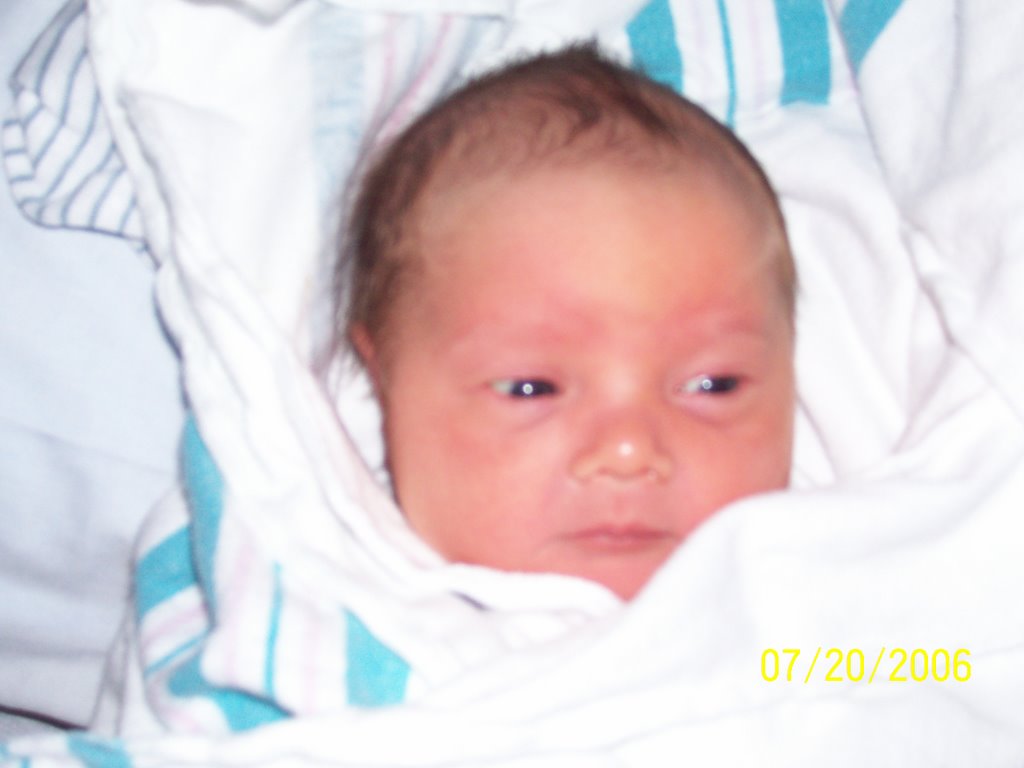  |
